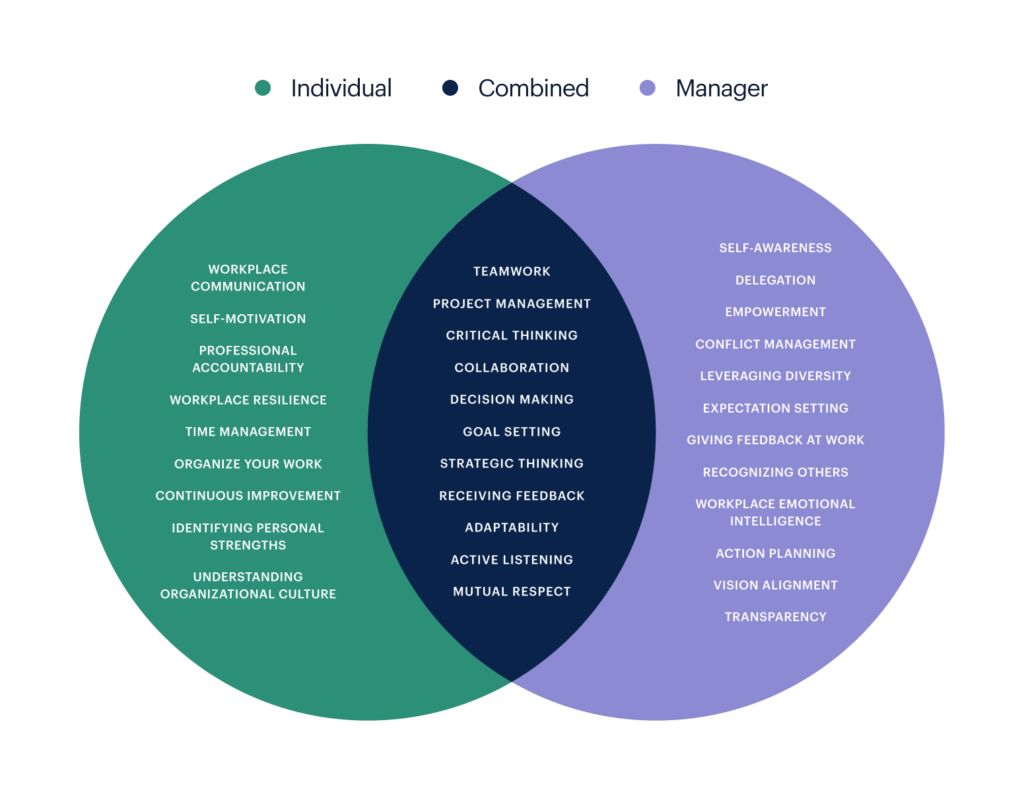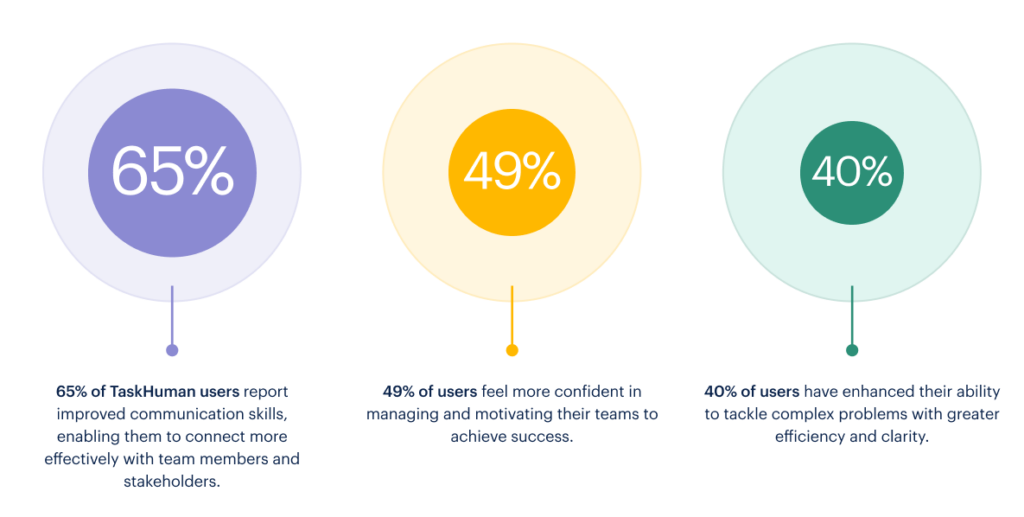
The frontline workforce is eager to grow, with nearly 70% of frontline leaders expressing interest in developing their leadership skills. This desire for growth presents a crucial opportunity for organizations to empower and upskill their frontline teams, particularly those stepping into leadership roles.
Whether transitioning from individual contributors to managers or navigating the unique challenges of leading frontline teams, leadership development has never been more critical. By investing in the growth of frontline leaders, organizations can build stronger teams, foster resilience, and ensure long-term success—all while promoting safety, mental well-being, and high performance standards.
Going From An Individual Contributor To A Manager: A Mindset Shift
One of the most transformative steps in a frontline worker’s career is transitioning from an individual contributor to a managerial role. This change is more than just a promotion—it’s a fundamental shift in focus and responsibilities. While individual contributors excel by completing tasks and meeting objectives, managers must shift their attention to guiding teams, fostering collaboration, and coaching employees to succeed. This transition can be particularly challenging for frontline leaders, who must balance operational demands with the well-being and development of their teams.

To thrive in this role, new managers need more than technical expertise—they require skills like emotional intelligence, conflict resolution, effective communication, and delegation. These abilities enable leaders to build trust, create a positive workplace culture, and empower their teams to perform at their best. Organizations that prioritize equipping frontline leaders with these tools not only support their managers’ success but also create the framework that allows for improved employee engagement and team cohesion across the board. Leadership development is not just an investment in individuals; it’s a driver of organizational success.
Skills For Leading And Supporting Frontline Workers
Frontline managers are the bridge between an organization’s strategic goals and the employees who execute them. To effectively lead, they need skills that go beyond technical knowledge. Leaders must be equipped with the ability to inspire and motivate their teams, communicate clearly, and make decisions under pressure—all while providing the support their team members need to excel.
Key Skills For Frontline Leaders:
- Communication: Effective communication is essential in ensuring frontline workers understand their roles, goals, and the resources available to them.
- Emotional Intelligence: Understanding and managing emotions—both their own and others—is critical in fostering a healthy work environment and reducing workplace stress.
- Decision-Making: Frontline managers often need to make quick yet informed decisions in fast-paced environments.
To enhance these skills, organizations should consider offering leadership development programs that focus on these core competencies, helping to build well-rounded leaders who can both manage performance and develop strong relationships with their teams.

Enhancing Safety And Mental Health In Frontline Roles
Frontline workers operate in high-pressure environments, often juggling physical demands and mental health challenges. These employees perform critical functions under strenuous conditions, making their well-being a business and ethical priority. Stress is a prevalent issue, with 77% of workers reporting work-related stress and 57% experiencing negative impacts such as burnout, which is linked to increased absenteeism, turnover, and decreased productivity.
To address these challenges, organizations should integrate mental health awareness and stress management into their workforce development strategies. Equipping frontline leaders with the tools to identify and respond to signs of burnout is key. Training in resilience techniques and providing access to mental health resources, mindfulness practices, and coping strategies can make a tangible difference. A workplace culture that prioritizes well-being not only safeguards employees but also enhances morale, retention, and overall organizational performance. By fostering a supportive environment, companies can create safer and healthier workplaces where frontline workers can thrive.
Developing Leaders To Respond To Frontline Challenges
Frontline managers are the first line of defense when challenges arise, whether it’s navigating a sudden surge in workload or resolving conflicts within their teams. To thrive in these situations, frontline leaders need to be prepared to respond quickly and effectively, ensuring smooth operations in high-pressure environments.
Equipping leaders with the right tools is essential to handling these challenges. It’s crucial that they know how to manage conflict, make sound decisions under pressure, and remain calm in emergency situations. Additionally, fostering the ability to recognize when a team member may need support—whether professionally or personally—builds trust and strengthens the overall team dynamic. By preparing leaders to respond effectively, organizations create a more resilient and cohesive frontline workforce that can tackle any obstacle that comes their way.

Building A Culture Of Support And Resilience
A culture that supports resilience at all levels—especially for frontline workers—ensures long-term success. Building resilience involves more than just offering development programs; it’s about creating an environment where workers feel they have the resources and support to navigate professional and personal challenges.
Key Strategies For Building A Resilient Culture:
- Employee Development Journeys: Design and implement comprehensive development programs that support growth at all stages of an employee’s journey, from onboarding to leadership development.
- Ongoing Coaching: Provide consistent, on-demand coaching to help leaders manage stress, improve performance, and build resilience.
- Recognition And Rewards: Regular recognition and rewards for frontline workers help build morale and keep employees motivated, especially during difficult periods.
When leaders demonstrate resilience and support their teams through ongoing development and coaching, they contribute to a positive and resilient organizational culture that extends beyond just leadership roles.
Empowering Frontline Leaders For Lasting Impact
The success of an organization’s frontline operations hinges on the strength of its leaders. By investing in the development of frontline leadership and fostering a culture of continuous growth, companies can create resilient, engaged, and empowered teams. When leaders are equipped with the right tools and skills, they become better at prioritizing employee well-being, improving performance, and driving organizational success.
Building a resilient workforce isn’t just about training—it’s about creating an environment where ongoing support, recognition, and development are integral to the culture. In doing so, organizations set their teams up for long-term success, ensuring that they remain adaptable and well-prepared for the challenges of the future. To provide the support and development needed for your frontline leaders, connect with the TaskHuman team and discover how we can help you foster a resilient and high-performing leadership culture.